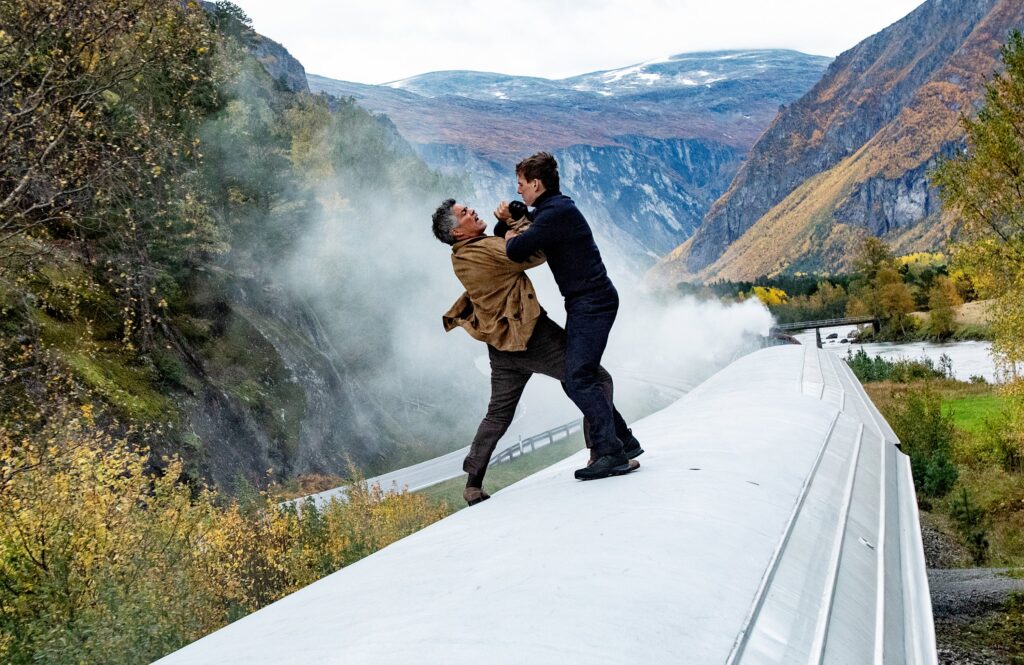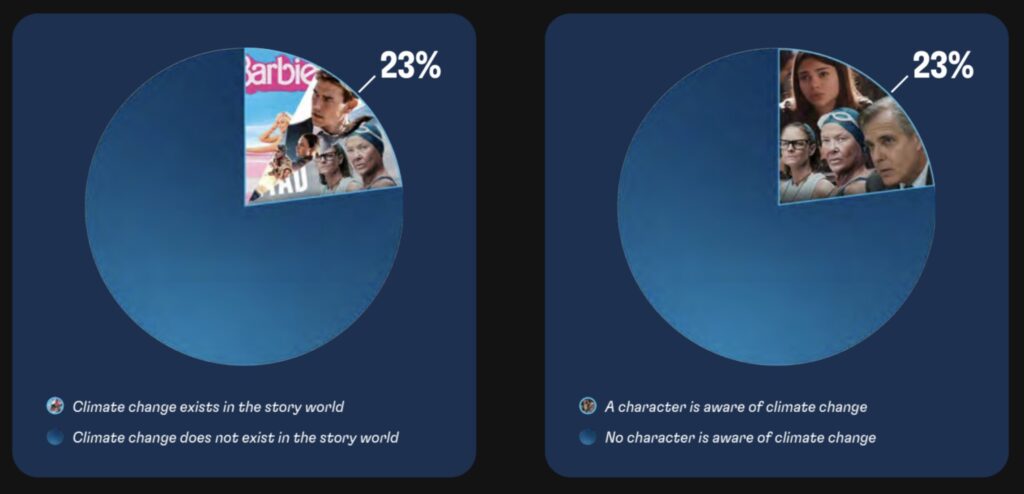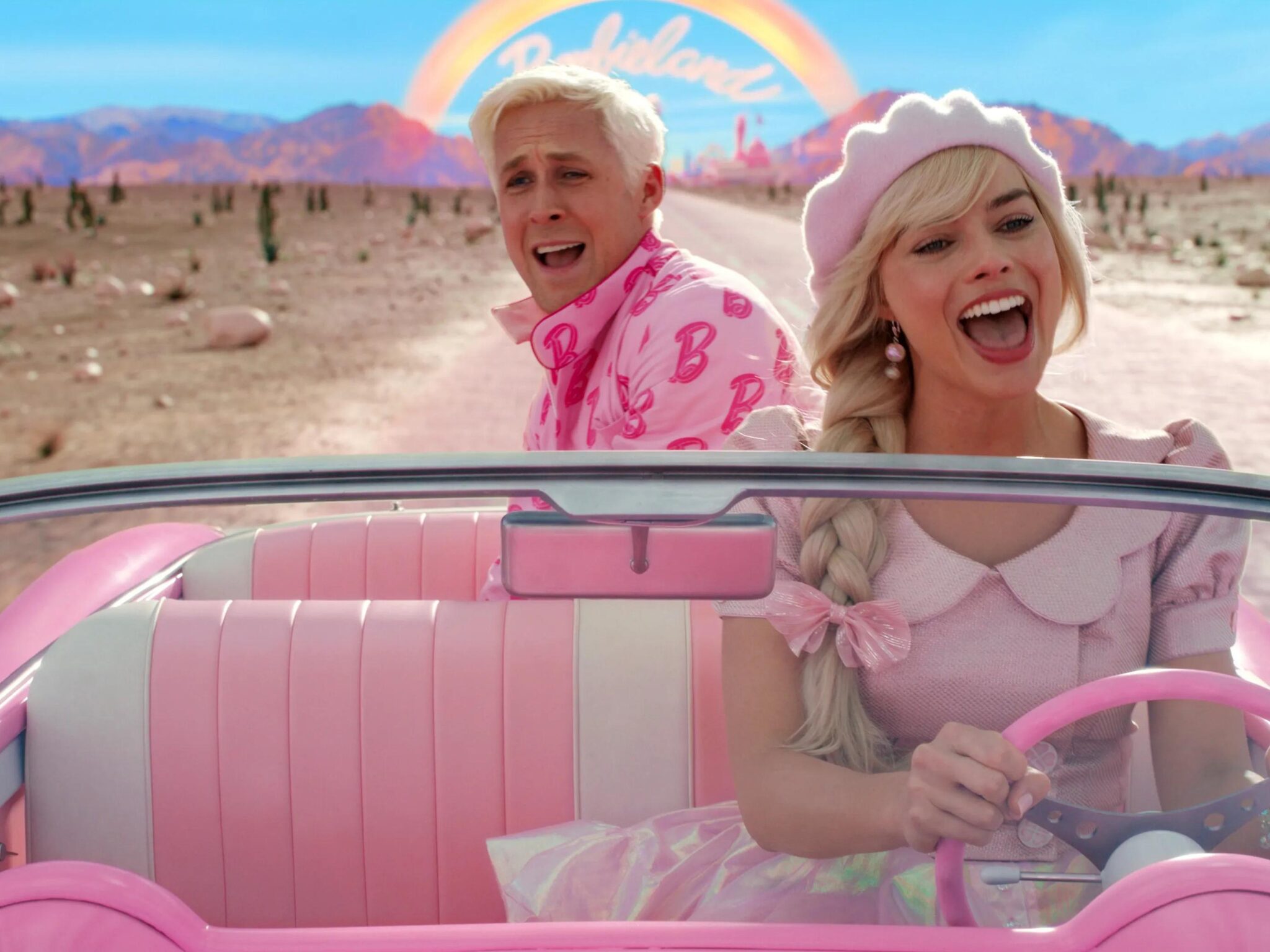5 Mins Read
There’s a new Bechdel-Wallace Test in Hollywood – but this one focuses on climate change. Which Oscar-nominated movies pass the Climate Reality Check for 2024?
“Now I am become Death, the Destroyer of Worlds.”
It’s an ancient line that exploded in popularity last year with Christopher Nolan’s Oppenheimer, which is the favourite for this year’s Best Picture Oscar. Of course, the American physicist said this in the grave context of building the world’s first atomic bomb, which would change the course of the world’s history.
One thing changing the course of today’s history (and future) is climate change, which is in its own way a destroyer of worlds – it kills as many as five million people every year. The importance of addressing it cannot be understated, and it’s with that premise that someone has developed a new climate reality test for movies.
For decades, films have been assessed through the Bechdel-Wallace Test for gender representation, which has three stipulations: at least two women are featured in the project; these women talk to each other; and their discussion covers something other than a man.
Now, climate story consultancy Good Energy has partnered with Colby College’s Buck Lab for Climate and Environment to unveil the Climate Reality Check. The environmental version of the Bechdel Test has two simple criteria: climate change exists, and a character knows it.
“The Climate Reality Check is a simple, illuminating, and powerful tool that can be used to evaluate any group of narratives — from films and TV shows to video games and novels — for their reflection of our climate reality. In this way, the Climate Reality Check provides a new and necessary perspective on storytelling in and for a world on fire,” explained Matthew Schneider-Mayerson, associate professor of English at Colby College.
A climate edition of the Bechdel Test

The Climate Reality Test was developed in consultation with over 200 writers, showrunners, executives and communications experts to ensure it was easy, measurable and creatively inspiring. The organisers argue that since the climate crisis touches every aspect of life, it’s only natural for it to show up in movies.
“This is about highlighting authentic stories that reflect the reality we’re all living in and help us navigate what it means to be human in the age of climate change,” they explain, adding that the intention is not to require every story to centre around the crisis, or tell filmmakers what kind of stories to make. “It simply measures whether our current climate reality is being reflected on-screen.”
The idea is to provide writers and industry members with an easy tool to measure whether climate representation is present in stories, and help audiences see if Hollywood is representing the reality on screen.
The first component of the twofold criteria requires that climate change exists in the movie’s world. “When stories erase climate change, they seem increasingly out of touch with reality,” the test’s developers explain. This part of the test can be passed through the portrayal of impacts and solutions – this could mean showing an unprecedented heat wave, a news story about rising sea levels, or climate-related graffiti.
The second section of the Climate Reality Check involves a character being aware of climate change. This could be demonstrated via dialogue, narration, actions or visual imagery. For example, a character’s narration could establish the climate context, they could be shown reading a news article about climate change, or there could be a conversation about extreme weather.
“The Bechdel-Wallace Test debuted in a 1985 comic strip. Four decades later, it still resonates as one of the most effective tools for measuring female representation in film and television,” said Good Energy founder and CEO Anna Jane Joyner. “Good Energy set out to capture that same light-hearted yet incisive quality in measuring climate visibility.”
Which Oscar nominees pass the Climate Reality Test?

To meet the eligibility requirements of the Climate Reality Test, movies must take place on Earth, and be set either in the present or in the near future. This year, a total of 31 movies have been nominated for an Oscar, with the awards set to take place on Sunday, March 8. Of these, 13 were eligible for the test: Barbie, American Fiction, Anatomy of a Fall, Past Lives, May December, Nyad, Mission: Impossible – Dead Reckoning Part One, The Creator, Spider-Man: Across the Spider-Verse, Io Capitano, Perfect Days, The Teachers’ Lounge, and Godzilla Minus One.
But only three Academy Award nominees passed this climate version of the Bechdel Test for the 2024 ceremony. These were Barbie, the cultural phenomenon in the running for eight awards, which has a quick mention tying climate change to consumerism (perhaps a nod to the real plastic doll’s plastic issues). Teenager Sasha accuses Margot Robbie’s Barbie of “killing the planet with your glorification of rampant consumerism” – which the researchers claim “connects climate change to one of its root systemic causes”.
In Mission: Impossible – Dead Reckoning Part One, which is nominated for two Oscars, CIA director Eugene Kittridge warns Ethan Hunt (played by Tom Cruise) that “the next world war isn’t going to be a cold one”. “It’s going to be a ballistic war over a rapidly shrinking ecosystem. It’s going to be a war for the last of our dwindling energy, drinkable water, breathable air,” he explains.
And in Nyad, which is also nominated for two honours, climate change is mentioned explicitly as an obstacle to Diana Nyad’s attempt to swim from Cuba to Florida. On her third try, she is almost killed by a jellyfish sting, after which her coach says: “So the UMiami folks think that the box jellyfish came up off the shallow reef when we left Cuba. Global warming.” Earlier in the film, there is talk about how the box jellyfish “can kill you” and “shouldn’t be” in this part of the ocean – a clear illustration of the threat climate change poses to livelihood.
These three movies represent 23% of the total Oscar-nominated movies eligible for the Climate Reality Check this year. The researchers have expressed their desire to see this mark cross 50% by 2027.
“I’m thrilled to see that several of my favourite Oscar-nominated films from the last year passed the Climate Reality Check,” said Joyner. “It’s a clear demonstration that acknowledging the climate crisis on-screen can be done in entertaining and artful ways that are authentic to the story. More proof that audiences crave seeing their own world and experience, which now universally includes the climate crisis, reflected on screen.”
It’s Oscar night this weekend – might we see some mention of climate change there too?



